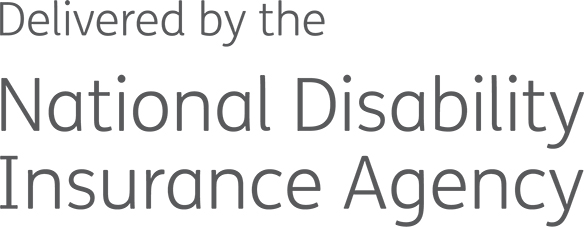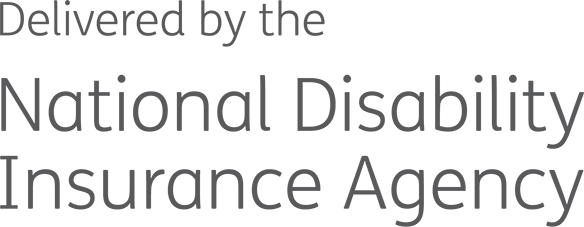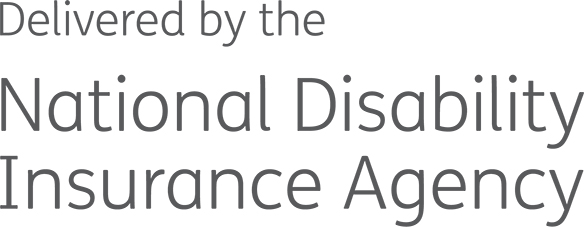
 Our reference:
Our reference: FOI 24/25-1246
GPO Box 700
Canberra ACT 2601
1800 800 110
23 June 2025
ndis.gov.au
Bob Buckley
By email: xxxxxxxxxxxxxxxxxxxxxxxxxx@xxxxxxxxxxx.xxx.xx
Dear Bob Buckley
Freedom of Information request — Notice of Decision
Thank you for your correspondence of 4 February 2025, seeking access under the
Freedom
of Information Act 1982 (FOI Act) to documents held by the National Disability Insurance
Agency (NDIA).
The purpose of this letter is to provide you with a decision on your request.
Scope of your request
You have requested access to the following documents:
“Dear National Disability Insurance Agency, I request, under the provisions of the
Freedom of Information Act, all policy, instruction, case management guidance, advice,
briefings, training materials, etc. (either completed or in development) since 2020 about
the NDIS as Respondent seeking involvement of a so-called Independent Medical Expert
(IME), or similar role, in relation to either or both Administrative Appeals Tribunal (AAT)
or Administrative Review Tribunal (ART) reviews of NDIS decisions about an NDIS
participants' plans (or Statements of Participant Supports). I am after general
information, not information about reviews of individual decisions. Please omit
information that is specific to any individual matter under review.”
Timeframe
A 30-day statutory period for processing your request commenced from 4 February 2025 in
accordance with section 15(5)(b) of the FOI Act. The due date for a decision on access was
6 March 2025
. I note this time has lapsed and as a result we are deemed to have refused
your request under section 15AC of the FOI Act.
1
Despite this, I have continued to process your application. I apologise for the delay and
confirm that you retain your right to seek external review of this decision.
Decision on access to documents
I am authorised to make decisions under section 23(1) of the FOI Act. My decision on your
request and the reasons for my decision are set out below.
I have identified 8 documents, which fall within the scope of your request.
The documents were identified by conducting searches of NDIA’s systems, using all
reasonable search terms that could return documents relevant to your request, and
consulting with relevant NDIA staff who could be expected to be able to identify documents
within the scope of the request.
I have decided to grant access to 1 document in full, and 7 documents in part.
In reaching my decision, I took the following into account:
your correspondence outlining the scope of your request
the nature and content of the documents falling within the scope of your request
the FOI Act
the FOI Guidelines published under section 93A of the FOI Act
relevant case law concerning the operation of the FOI Act
consultation with relevant NDIA staff
factors relevant to my assessment of whether or not disclosure would be in the public
interest
the NDIA’s operating environment and functions.
Section 22 – Access to edited copies with exempt or irrelevant material deleted
Section 22 of the FOI Act permits an agency to prepare and provide an edited copy of a
document where the agency has decided to refuse access to an exempt document or that to
give access to a document would disclose information that would reasonably be regarded as
irrelevant to the request for access.
I have identified both exempt and irrelevant material in seven (7) documents and am
satisfied that it is reasonably practicable to remove this material and release the documents
to you in material form.
2
Reasons for decision
Certain operations of agencies (section 47E(d))
Section 47E(d) of the FOI Act conditionally exempts a document if its disclosure would, or
could reasonably be expected to, have a substantial adverse effect on the proper and
efficient conduct of the operations of an agency.
Document 7 contains information relating to certain operations of the NDIA, specifically, it
contains internal instructions and guidance for arranging expert, medical or other
assessments.
The disclosure of this information could reasonably be expected to undermine the NDIA’s
procedural integrity and may allow external parties to gain insight into thresholds and
strategies allowing them to manipulate the process. Any disclosure resulting in the prejudice
of the effectiveness of the Agency’s operational methods and procedures would, or could
reasonably be expected to, result in the need for the Agency to change those methods and
procedures to ensure the future effectiveness.
Accordingly, I find that disclosure of this information would or could reasonably be expected
to have a substantial adverse effect on the operations of the Agency and is therefore
conditionally exempt under section 47E(d) of the FOI Act.
Personal privacy (section 47F)
Section 47F of the FOI Act conditionally exempts a document(s) if its disclosure would
involve the unreasonable disclosure of personal information about any person (including a
deceased person).
I have identified material in the documents falling within scope of your request which
contains personal information, specifically, last names of non-SES staff.
Under section 47F(2) of the FOI Act, in determining whether the disclosure of documents
would involve unreasonable disclosure of personal information, regard must be had to:
a. the extent to which the information is well known;
b. whether the person to whom the information relates is known to be (or to have been)
associated with the matters dealt with in the document;
c. the availability of the information from publicly accessible sources; and
d. any other matters that the agency considers relevant.
3
Against these criteria, I take the view that:
a. it is apparent from the information that an individual is identifiable; and
b. the information referred to above is not readily available from publicly accessible
sources.
With reference to the assessment above, it would be unreasonable to disclose publicly this
personal information and is therefore conditionally exempt under section 47F(1) of the FOI
Act.
Public interest considerations – section 47E(d) and 47F
Section 11A(5) of the FOI Act provides that access to a document covered by a conditional
exemption must be provided unless disclosure would be contrary to the public interest.
I have not considered any of the irrelevant factors as set out under section 11B(4) of the FOI
Act in making this decision.
In favour of disclosure, I have considered the factors outlined in section 11B(3) of the FOI
Act, and I have determined that disclosure of the relevant information in Documents 7 and 8
would promote the objects of the FOI Act by providing access to documents held by the
government and providing access to information.
Against disclosure, I consider that disclosure of the relevant information in Documents 7 and
8:
would not contribute to the publication of information of sufficient public interest to justify
the likely harm caused by release
would not enhance Australia’s representative democracy in the ways described in
section 11B(3) of the FOI Act
would not inform any debate on a matter of public importance, or promote oversight of
public expenditure.
While there is limited public interest in the disclosure of information conditionally exempt
under section 47E(d) and 47F of the FOI Act, the harm that would result from disclosure is
that it could reasonably be expected to:
reveal internal strategies and processes, which could be misused by external parties
4

undermine the agency’s capacity to manage expert evidence effectively and flexibly,
particularly where discretion is required
affect an individual’s right to privacy by having their personal information in the public
domain.
In summary, I am satisfied that the factors against disclosure of the information outweigh the
factors in favour of disclosure and that, on balance, it would be contrary to the public interest
to release this information to you. Accordingly, I have decided that the relevant information in
Documents 7 and 8 is exempt under sections 47E(d) and 47F of the FOI Act.
Release of documents
The documents for release, as referred to in the Schedule of Documents at
Attachment A,
are enclosed.
Rights of review
Your rights to seek a review of my decision, or lodge a complaint, are set out at
Attachment B.
Should you have any enquiries concerning this matter, please do not hesitate to contact me
by email at xxx@xxxx.xxx.xx.
Yours sincerely
Kate (KIM627)
A/Assistant Director – Freedom of Information
Non Personals Team
Information Release, Privacy and Legal Operations Branch
Reviews and Information Release Division
5
 Attachment A
Schedule of Documents for FOI 24/25-1246
Document
Page
Description
Access Decision
Comments
number
number
Attachment A
Schedule of Documents for FOI 24/25-1246
Document
Page
Description
Access Decision
Comments
number
number
1 1-2
Case Management Guide- Conciliation
PARTIAL ACCESS
Irrelevant material
removed under section
Date: October 2024
22 of the FOI Act
2 3-10
Standard Operating Procedure: Resolved by Hearing
PARTIAL ACCESS Irrelevant
material
(Obsolete)
removed under section
22 of the FOI Act
Date: 26 August 2023
3 11-19
Standard Operating Procedure: Resolved by Hearing
PARTIAL ACCESS Irrelevant
material
(Draft)
removed under section
22 of the FOI Act
Date: Undated
4 20-25
Standard Operating Procedure: Appeals and
PARTIAL ACCESS Irrelevant
material
Litigation Oversight Committee (ALOC) and Pre-
removed under section
ALOC
22 of the FOI Act
Date: 14 March 2025
5 26-35
Standard Operating Procedure: Requesting an
FULL ACCESS
Independent Expert Clinician Report
Date: October 2024
6 36-43
Standard Operating Procedure: Early Assessment
PARTIAL ACCESS Irrelevant
material
removed under section
Date: April 2025
22 of the FOI Act
7 44-52
Standing Instructions Administrative Appeals
PARTIAL ACCESS
Irrelevant material
Tribunal
Exemption claimed:
removed under section
s47E(d) – certain
22 of the FOI Act
Date: October 2023
operations of agencies
1
8 53-77
Guide to Requesting Additional Medical Evidence for
PARTIAL ACCESS
Case Managers in the AAB
Exemption claimed:
s47F – personal privacy
Date: 25 January 2024
7
 Attachment B
Your review rights
Attachment B
Your review rights
As this matter was a deemed refusal, internal review of this decision is not an option.
However, if you have concern with any aspect of this decision, please contact the NDIA FOI
team by email xxx@xxxx.xxx.xx or by post:
Freedom of Information Section
Complaints Management & FOI Branch
General Counsel Division
National Disability Insurance Agency
GPO Box 700
CANBERRA ACT 2601
Review by the Office of the Australian Information Commissioner
The FOI Act gives you the right to apply to the Office of the Australian Information
Commissioner (OAIC) to seek a review of this decision.
If you wish to have the decision reviewed by the OAIC, you may apply for the review, in
writing, or by using the online merits review form available on the OAIC’s website at
www.oaic.gov.au, within 60 days of receipt of this letter.
Applications for review can be lodged with the OAIC in the following ways:
Online:
www.oaic.gov.au
Post:
GPO Box 5218, Sydney NSW 2001
Email:
xxxxxxxxx@xxxx.xxx.xx
Phone:
1300 363 992 (local call charge)
Complaints to the Office of the Australian Information Commissioner or the
Commonwealth Ombudsman
You may complain to either the Commonwealth Ombudsman or the OAIC about actions
taken by the NDIA in relation to your request. The Ombudsman will consult with the OAIC
before investigating a complaint about the handling of an FOI request.
Your complaint to the OAIC can be directed to the contact details identified above. Your
complaint to the Ombudsman can be directed to:
Phone:
1300 362 072 (local call charge)
Email:
xxxxxxxxx@xxxxxxxxx.xxx.xx
Your complaint should be in writing and should set out the grounds on which it is considered
that the actions taken in relation to the request should be investigated.
1




